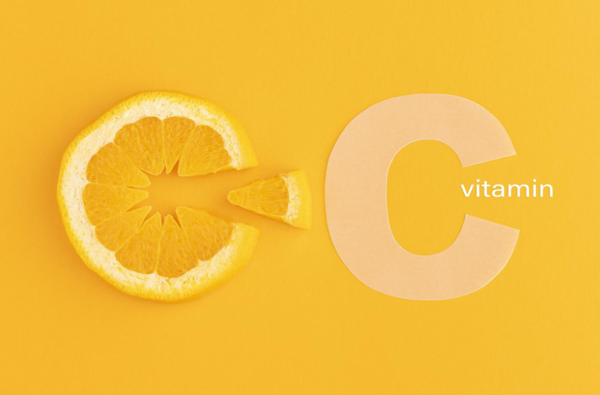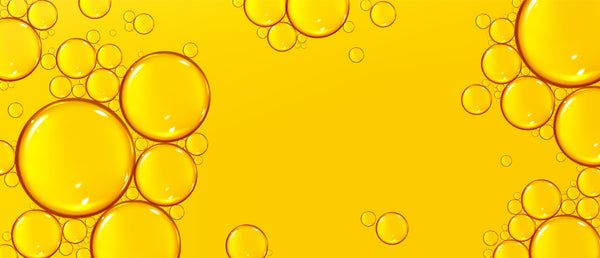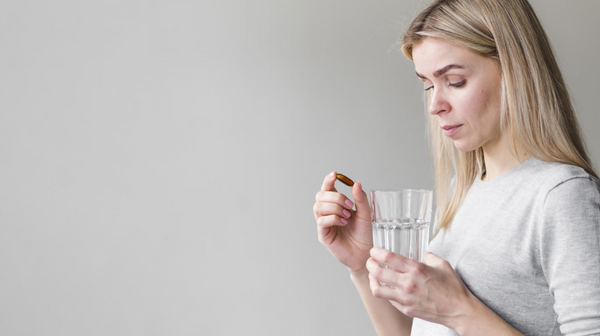Antibiotic is an antibacterial agent (Natural or synthetic) that can kill or slow down the growth of bacteria. Usually, our immune system is meant to fight bacteria and ward off infections. But in some instances, our immune system alone would not have enough power to fight them all. In this situation, antibiotics are helpful and aid in saving lives.
Dangers of Taking Synthetic Antibiotics
Undoubtedly, synthetic antibiotics are an incredible privilege, and we are so fortunate to have access to it. But it comes with many adverse effects, including antibiotic resistance, allergic reactions, diarrhea, gut microflora imbalance (destruction of good bacteria too), and intestinal inflammation.
Bacteria are also highly adaptable.

Over time, they evolve to become stronger, resistant, and immune to the synthetic antibiotic drugs we take to kill them. This process is called antibiotic resistance. And unfortunately, antibiotic-resistant bacteria are tough to kill, potentially very costly to treat, and have many other side effects, including disability and even death in severe cases.
A synthetic antibiotic kills even healthy, beneficial bacteria, which lead to gut microflora imbalance, increased susceptibility to infections, a compromised immune system, and a deregulated metabolism.
"Natural Antibiotics"- Immunity Boosting Foods
Given how synthetic antibiotics can affect your body, it is always advisable to allow your body enough time to fight the bacteria without any medication. It would also help to devise ways to improve or bolster your immune system so that you can be protected from infectious diseases.
Here are the top five natural antibiotic foods provided by mother nature to naturally boost your immunity and ward off infections.
Ginger
Ginger has been widely used as a natural antibiotic, primarily to fight foodborne pathogens like salmonella, listeria, and campylobacter. It is also known to soothe digestive ailments and promote balance in the gut by stimulating the growth of beneficial microflora belonging to the Bifidobacterium genus. ’Gingerol’, the bioactive compound in ginger, is found to possess antimicrobial, antifungal, and many medicinal properties. It lowers the risk of developing cancer and relieves severe digestive issues.
Turmeric
Turmeric is a prevalent Indian spice known for its anti-inflammatory and antimicrobial, antiviral, and anti-parasitic properties, making it an excellent natural herbal alternative to fighting off infections. It is also very effective in treating urinary tract infections by reducing the activity of the microbes causing the infection. It also helps in treating fungus growth. ‘Curcumin’ is the bioactive compound found in turmeric responsible for these health benefits.
Garlic
Garlic is one of the most potent antibiotics. Bioactive compound ‘allicin’ found in garlic has antimicrobial activity, including antiviral, antifungal, and antimicrobial properties to fight infections and keep sicknesses at bay. Besides that, garlic is also very high in natural antioxidants that neutralize the free radicals and support a robust immune system. So, include more garlic, either raw or cooked, in your daily diet.
Echinacea

Echinacea is a kind of daisy flower, is a natural remedy used for treating open wounds, open wounds, blood poisoning, bacterial infections, and boosting the immune system. Research has proven that Echinacea can help treat respiratory infections as well. Additionally, it can help cut the duration of illnesses if it is taken as soon as a common cold develops.
Onion
Onions are closely related to garlic and hold similar medicinal properties. It contains powerful flavonoids with antibiotic effects, and, like garlic, they contain therapeutic sulfur compounds called cysteine sulphoxides. The bioactive compound ‘Quercetin’ found in onions seems to be a compelling way to fight bacteria. It can inhibit the growth of potentially harmful bacteria like Escherichia. coli and Staphylococcus aureus. It can significantly inhibit the growth of Vibrio cholera bacteria that is quite a public health concern in the developing world. Onions are an excellent source of antioxidants as well. They contain a variety of flavonoid antioxidants that fight against free radicals and inhibit cellular damage.
Take Away
While synthetic antibiotics have their place in the medicine world, natural and Ayurvedic remedies are always better, safer, free of side effects, and much more effective. Whenever possible, use natural antibiotic alternatives to increase your body’s ability to fight infections and reduce the dependency on synthetic antibiotics. Adding these natural immunity-boosting foods to your daily diet will make you healthier and prevent infections and diseases.
References:
- Antimicrobial resistance: risk associated with antibiotic overuse and initiatives to reduce the problem, Carl Llor and Lars Bjerrum, Therapeutic Advances in Drug Safety Journal, 2014, doi: 10.1177/2042098614554919, (https://www.ncbi.nlm.nih.gov/pmc/articles/PMC4232501/)
- Beneficial effects of an aqueous ginger extract on the immune system cells and antibodies, hematology, and thyroid hormones in male smokers and non-smokers, Sawsan Hassan Mahassni and Oroob Abid Bukhari, Journal of Nutrition & Intermediary Metabolism, (https://www.sciencedirect.com/science/article/pii/S2352385918300598)
- “Spicing Up” of the Immune System by Curcumin, Ganesh Chandra Jagetia and Bharat Aggarwal, Journal of Clinical Immunology, 2007, DOI:10.1007/s10875-006-9066-7,(https://www.researchgate.net/publication/6589131_Spicing_Up_of_the_Immune_System_by_Curcumin)
- Immunomodulation and anti-inflammatory effects of garlic compounds, Rodrigo Arreola, Saray Quintero-Fabián, Rocío Ivette López-Roa, Enrique Octavio Flores-Gutiérrez, Juan Pablo Reyes-Grajeda, Lucrecia Carrera-Quintanar, Daniel Ortuño-Sahagún, Journal of Immunology Research, DOI: 10.1155/2015/401630, (https://pubmed.ncbi.nlm.nih.gov/25961060/)
- Enhancement of Innate and Adaptive Immune Functions by Multiple Echinacea Species, Zili Zhai,Yi Liu, Lankun Wu, David S. Senchina, Eve S. Wurtele, Patricia A. Murphy, Marian L. Kohut, and Joan E. Cunnick, Journal of Medicinal Food, 2007, doi: 10.1089/jmf.2006.257, (https://www.ncbi.nlm.nih.gov/pmc/articles/PMC2362099/)
- Effect of Allium Cepa and Allium Sativum on Some Immunological Cells in Rats, Tatfeng Y Mirabeau and Enitan S Samson, African Journal of Traditional, Complimentary, and Alternative Medicines, 2012, (https://www.ncbi.nlm.nih.gov/pmc/articles/PMC3746674/)


























